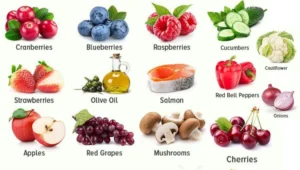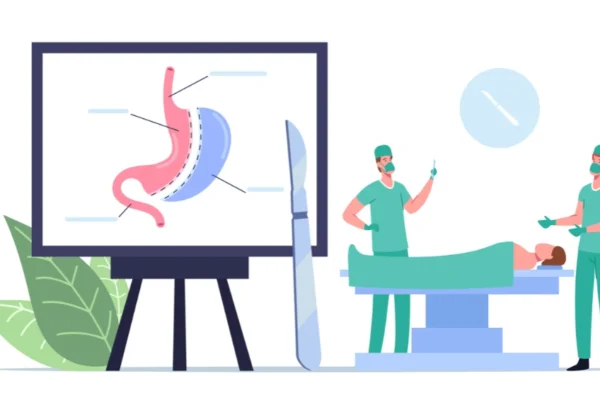Taking care of your kidneys is essential for overall health. Your kidneys filter waste, manage fluid balance, and regulate important minerals in your body. One of the best ways to support kidney function is through smart food choices. This article highlights the top 10 foods for kidney health that you should include in your diet today. These nutrient-rich foods help reduce strain on your kidneys, promote optimal function, and support overall wellness.
1. Red Bell Peppers
Red bell peppers are low in potassium and rich in vitamins A, C, B6, and folic acid, making them perfect foods for kidney health. They add flavor and nutrition without overloading potassium intake, which is important if you have kidney concerns. Sauté them in olive oil or chop fresh into salads and omelets.
2. Cabbage
Cabbage is another kidney‑friendly vegetable. It’s high in vitamin K, vitamin C, and fibre but low in potassium. Including cabbage is an easy way to support healthy digestion and blood pressure, without burdening the kidneys. Add shredded cabbage to slaws or toss into soups—for excellent foods for kidney health benefits.
3. Cauliflower
Cauliflower is a versatile vegetable that shines in a kidney‑safe diet. It’s low in potassium but packed with vitamin C, folate, fibre, and antioxidants. You can steam, roast, or mash cauliflower as a healthier alternative to potatoes, making it a smart choice among foods for kidney health.
4. Blueberries
Blueberries are flavorful, low in potassium, and loaded with antioxidants like anthocyanins. These compounds protect blood vessels in the kidneys and reduce inflammation. Whether eaten fresh or added to yogurt and smoothies, blueberries rank high among foods for kidney health.

5. Strawberries
Strawberries are another kidney‑safe fruit that tastes great and packs nutritional value. Low in potassium and full of antioxidants and fibre, strawberries help combat oxidative stress that can affect kidney function. Add them to cereals, oatmeal, or enjoy as a fresh snack—excellent foods for kidney health.
6. Fish (Low‑Fat, Omega‑3 Rich)
Fatty fish like salmon, mackerel, trout, and sardines provide omega‑3 fatty acids, which support heart and kidney health. These foods for kidney health help reduce inflammation and may lower blood pressure. Aim for 2–3 servings per week—perfect grilled, baked, or in salad.
7. Egg Whites
Whole eggs contain phosphorus and potassium, which may be restricted in kidney health plans. Egg whites, however, offer high-quality protein without these minerals. As part of foods for kidney health, egg whites help preserve lean muscle and support kidney function, without excess mineral load. Make salads, omelets, or add to smoothies.
8. Red Grapes
Red grapes are small, naturally sweet, low‑potassium fruits rich in resveratrol, an antioxidant tied to heart and kidney protection. Snack on grapes or freeze them for a cool treat—one of the flavorful foods for kidney health choices.
9. Olive Oil
Healthy fats from olive oil offer anti‑inflammatory benefits while supporting kidney function. Use olive oil in dressings or for light sautéing. Since it’s low in phosphorus and potassium, it’s an ideal foods for kidney health ingredient for cooking and flavour.
10. Garlic
Garlic adds flavour while offering anti‑inflammatory and antioxidant properties. It’s also low in potassium. Garlic helps reduce sodium intake—cutting down on salt can ease kidney strain. Use minced garlic in dressings, marinades, and cooked dishes as one of your go‑to foods for kidney health staples.
Why These Foods Matter for Kidney Health
-
Lower Potassium and Phosphorus Content: Many of these selected foods for kidney health are chosen for their naturally low levels of potassium and phosphorus, key when managing kidney function. High levels can build up and lead to health complications.
-
Anti‑Inflammatory and Antioxidant Properties: Kidney damage often involves oxidative stress and inflammation. These foods for kidney health supply nutrients like flavonoids, vitamin C, and omega‑3s to counteract those harmful effects.
-
Quality Protein: Some entries, like egg whites and fish, provide high‑quality protein while minimizing the burden on your kidneys. Balanced protein helps preserve muscle without excess waste.
-
Heart-Kidney Connection: Kidney health is closely tied to cardiovascular health. Nutrients found in these foods for kidney health—olive oil, omega‑3 fatty acids, and berries—also support blood pressure, inflammation, and cholesterol.
How to Include These Foods in Your Daily Meals
-
Meal Planning
-
Roast a mix of red bell peppers, cauliflower, and cabbage for a nutrient-filled side dish.
-
Grill omega-3-rich fish with garlic and olive oil for a flavorful entrée.
-
Enjoy berry smoothies with blueberries and strawberries, topped with red grapes.
-
-
Snacking Smart
-
Snack on a handful of strawberries or blueberries mid-morning or with lunch.
-
Freeze some grapes for a refreshing, low-potassium snack in the afternoon.
-
-
Creative Recipes
-
Cauliflower mash: Steam cauliflower and blend with garlic, olive oil, and herbs in place of potatoes.
-
Egg white omelet: Whip egg whites with bell peppers and garlic for a satisfying breakfast.
-
Garlic-dressed greens: Toss chopped cabbage with olive oil, garlic, and a splash of vinegar.
-
Tips and Cautions
-
Consult Your Healthcare Provider: Kidney dietary needs can vary based on your stage of kidney function and lab results. Always discuss adjustments with your doctor or renal dietitian.
-
Watch Portion Sizes: Even low-potassium foods can add up if you eat large quantities. Stick to recommended serving sizes for safety.
-
Balance Fluids: Some people with kidney conditions need to monitor fluid intake. Include fluids from fruits and vegetables in your assessment of daily limits.
-
Limit High‑Potassium Vegetables: Foods like potatoes, bananas, tomatoes, and spinach can be high in potassium. Pair them sparingly or avoid depending on your dietary plan.
-
Read Labels: Watch for added phosphorus or potassium additives in packaged foods—even those advertised as healthy.
Sample One‑Day Meal Plan Featuring Foods for Kidney Health
| Meal | Menu Example |
|---|---|
| Breakfast | Egg white omelet with red bell peppers + garlic; fresh blueberries on the side |
| Snack | Strawberries or a small handful of red grapes |
| Lunch | Grilled salmon salad with olive oil vinaigrette; roasted cauliflower on side |
| Afternoon Snack | Cauliflower hummus (low-potassium recipe) with cabbage slaw |
| Dinner | Baked trout with garlic and herbs; mixed vegetable side (cabbage, peppers) |
| Dessert | Mixed berries (strawberries and blueberries) with a drizzle of olive oil and a sprinkle of ginger or mint |
This plan integrates multiple foods for kidney health to support dietary balance across the day.
Lifestyle Tips That Complement Kidney‑Healthy Foods
-
Stay Physically Active: Regular exercise helps support circulation, blood pressure, and overall kidney function.
-
Control Blood Pressure: Foods like olive oil and berries included in this list help maintain healthy blood pressure, critical for kidney health.
-
Stay Hydrated (as appropriate): Adequate water intake helps kidneys flush toxins, but follow recommended fluid guidelines.
-
Avoid Excess Salt: Reducing sodium helps decrease kidney strain—garlic and olive oil add flavor without salt overuse.
-
Maintain a Healthy Weight: Eating these foods for kidney health, combined with exercise, can help you manage weight and support kidney function long term.
Frequently Asked Questions
Q1. Why are low‑potassium foods important?
A: High potassium can build up in the blood when the kidneys can’t eliminate it efficiently. These foods for kidney health are selected because they generally have low potassium content, helpful in kidney-friendly diets.
Q2. Can I eat bananas or spinach?
A: Foods like bananas and spinach are high in potassium and may need to be limited or replaced with low-potassium options like bell peppers and cauliflower.
Q3. Are berries always safe?
A: Strawberries, blueberries, and red grapes are relatively low in potassium and phosphorus and high in antioxidants, making them kidney-friendly. But moderation is still key.
Q4. What protein sources are best?
A: Fish and egg whites offer good quality protein with minimal kidney strain—ideal foods for kidney health, and alternatives to red meat or processed protein sources.
Conclusion
Your kidneys play a vital role in filtering waste, balancing fluids, and maintaining overall health. Choosing the right foods can significantly alleviate stress on kidney function, support proper electrolyte balance, and promote wellness. From red bell peppers and cabbage to low-potassium fruits like blueberries and strawberries, and healthy protein choices such as fish and egg whites, these foods for kidney health offer both flavor and health benefits.
By incorporating garlic, olive oil, omega-3-rich fish, antioxidant-rich berries, and kidney-safe vegetables into your diet, you can create satisfying meals that actively support your kidneys. Pair these choices with thoughtful meal planning, hydration management, portion control, and healthy habits like exercise and blood pressure control.
Be sure to consult your healthcare provider or renal dietitian before making dietary changes, especially if you have chronic kidney disease or related health conditions. With the right approach, these power-packed foods for kidney health can be a cornerstone of your wellness journey, helping your kidneys thrive today and into the future.








